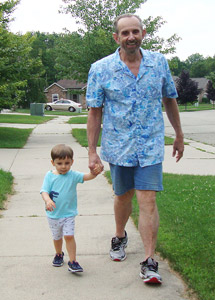Exercise: It All Counts
Here’s something to ponder the rest of the week: why do you exercise? If you don’t, what would your purpose be if you did? I think there are two primary reasons. First, burning calories helps lose weight. Second, if you exercise regularly, you might live longer. But then you hit those exercise recommendations: 150 minutes per week—30 minutes a day five days a week. Who has that much continuous time? Maybe it doesn’t have to be continuous.
A recent published study used data from the NHANES database to determine whether exercise had to be continuous or whether it could be done in shorter segments they called bouts in order to have benefit. They looked at a single outcome: mortality. The subjects wore accelerometers to determine activity levels throughout the day. It turns out that whether you do your 30 minutes of exercise continuously or break the 30 minutes into bouts or segments lasting at least five minutes at a time, there was no difference in the reduction in mortality. Of course, the more total minutes per week were associated with continuing decreases in mortality, but it didn’t matter whether it was in shorter bursts or continuous minutes.
If you want to exercise to live longer, just get moving at least five minutes at a time several times per day. Whether bouted exercise will get you fitter is a different question, but if you want to live longer, get moving.
I know you’ll be busy buying chocolate this weekend no matter what your religious affiliation, so no memo on Saturday. I’ll be back next Tuesday.
What are you prepared to do today?
Dr. Chet
Reference: J Am Heart Assoc. 2018;7:e007678. DOI: 10.1161/JAHA.117.007678.

